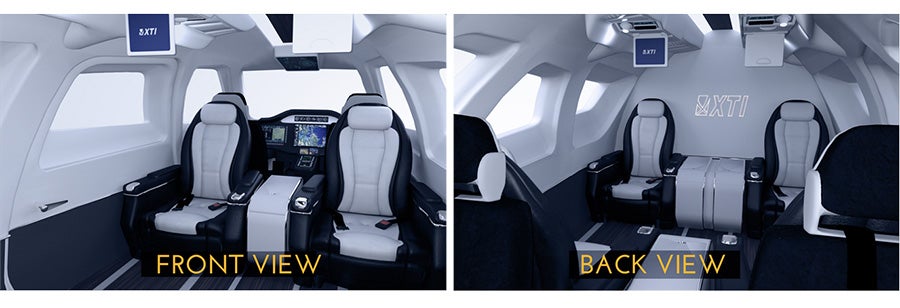An Equity Crowdfunding Campaign Just Launched to Create a Private Jet-Slash-Helicopter Hybrid The TriFan 600 boasts three deducted fans that are slanted horizontally for liftoff and then can flip forward within seconds to generate thrust.
By Geoff Weiss
Opinions expressed by Entrepreneur contributors are their own.

If airplanes can travel extensive distances at great speeds and helicopters have the ability to take off vertically and land with unparalleled precision, aviation experts now want to combine the best of both worlds.
Denver, Colo.-based XTI Aircraft Company has just launched an equity crowdfunding campaign seeking to raise up to $50 million to develop the TriFan 600, a six-seat private airplane that boasts three deducted fans. Two of these fans, initially acting as propellers of sorts, remain horizontal during liftoff, and then flip forward within seconds to generate thrust, XTI says. This process is reversed upon landing.
Click to Enlarge+

While the lightweight machine, which can travel at speeds that far outpace helicopters, could eventually be used for medical evacuations or tourism, XTI initially envisions the TriFan 600 as a stated play for the multibillion-dollar private aviation market.
Related: How the Global Stock Market Selloff Will Affect Crowdfunding
The company says it will sell the planes for between $10 and $12 million. However, it expects that it might take two-and-a-half years to build the first prototype once funding is secured -- with FAA approval estimated to follow between six and eight years thereafter. If 100 TriFans are ultimately sold, XTI notes in its StartEngine campaign, that would amount to $1 billion in revenue.
XTI, which says that it is not inventing new technology but combining existing flight paradigms, is the brainchild of David Brody, who developed the initial configuration for the TriFan 600 back in 2012. His partners include top executives from leading aircraft manufacturing companies Sikorsky and Cessna.
Given that the SEC recently amended its policy to allow non-accredited investors to participate in equity crowdfunding for small businesses, XTI says it wants to invite "anyone to be a part of the journey that will change personal transportation as we know it." Venture capital, private equity and high net worth investors are also part of its funding plan, the company said in a press release.
Related: Meet the Mastermind Who Designs Private Jet Vacations for the Ultra Wealthy












